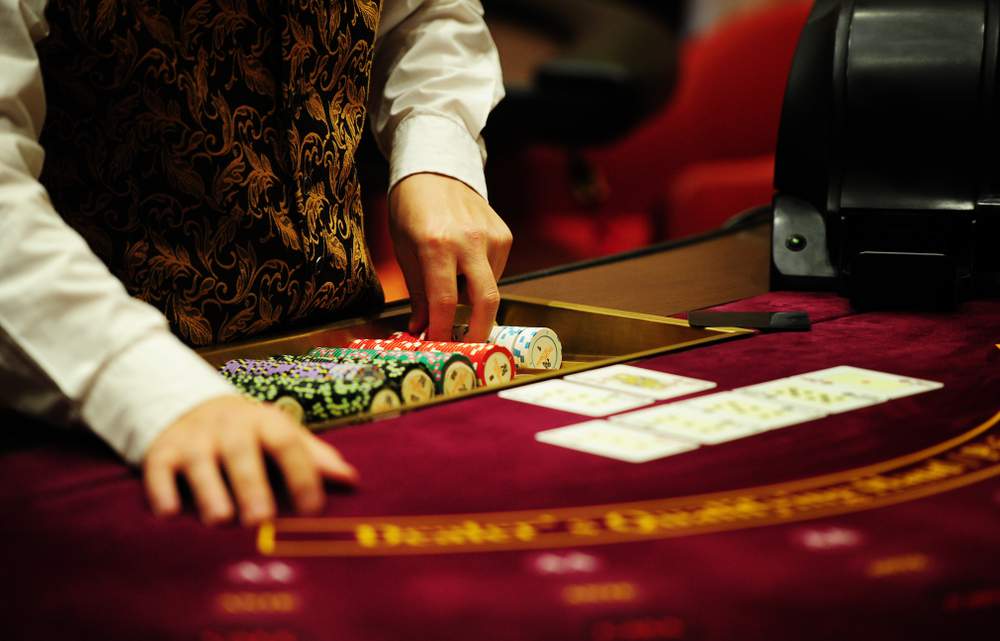

In 2022, the Macau SAR Government predicted the amount of revenue that would be collected from gaming tax. When the financials were published, it emerged that the actual collection fell a mere 55.9% of the sum that had been estimated. This translates to revenue of about MOP19.1 billion, or US$2.37 billion. The revenue drop as per the predictions made represents a decrease of 43.7% from MOP$33.9 billion, which is approximately 4.20 million US dollars. This is the exact total revenue collected in 2021, as per the numbers released by the Financial Services Bureau.
Gaming tax predictions can only be as accurate as the level to which local authorities follow up on payment. A rather unpredictable factor that could affect tax figures is the current market promotion forces. In other words, the factors that influence supply and demand in a typical market can also be in play in gambling markets. When betting industry customers spend on casino games, the state receives a portion of this money through remitted taxes.
The profit for the season also decreased with the decline of the overall revenue amount. In place of the usual total annual tax profit of MOP$1.23 billion, which is an estimated $153 million US dollars, the figure dropped by 53.2% for December 2022 which was 21.2% less than in November in the year-end filling. The revenue figure from December corresponds to the gross gaming revenue number of MOP$3.0 that reflects November’s performance in Macau.
While the approximate figure for this is $374 million US dollars, it is an indication that the market experienced a 55.6% annual drop. If the performance of the entire year is taken into consideration, the government of Macau evidently collected only 55.9% of the sum projected in the original budget. According to the government, the gaming market would generate MOP$34.4 billion, which is approximately 4.27 billion US dollars for the year.
The impact of Covid-19 on gaming income
It is a point of concern when annual revenue figures decrease without any real model changes from industry operators. The most logical explanation for the annual revenue decrease that was recently posted by Macau is the longstanding struggle between entertainment businesses and the Covid-19 pandemic. For operators who relied on the mainland china market, the inevitable restrictions kept people away from gaming premises. Large casino gaming rooms remained empty for weeks but recurring charges like rent and utilities still had to be paid for.
Everyone was concerned for their safety and since the effects of the virus varied between different people, many preferred to stay indoors. As would be expected, the indoors can be quite monotonous and many people discovered online gaming. With a huge chunk of bettors migrating from retail betting to internet gaming, the revenue margins for the industry as a whole remained more or less unchanged. Online gaming is believed to be more accessible to players because of convenience and this is the sector that has the potential of dominating the casino industry.
Even though the world is by now accustomed to the ravages of Covid-19, the recent outbreak that took place in Macau towards the end of 2022, affected gaming and tourism to a large extent. Industry experts have been quick to classify the negative impact as an unfortunate effect of the pandemic’s surprising resurgence. Despite the discouraging turn of events, it is expected that gaming tax revenue will start ascending.
If this round of the pandemic will be cooled down within the set schedule, Macau reopen its borders in time for the anticipated upward rise. Over the past Chinese New Year, Macau managed to raise 82.5%, (MOP11.58 billion), which translates to 1.45 billion US dollars. According to reports issued by the local health authorities, wearing of mass was mandatory for all those who were attending public events.
Covid-19 containment measures have evolved over time as people learn more about the virus and how it mutates within the human anatomy. In relation to this, the Macau Tourism head, Maria Helena de Senna Fernandes, has revealed that the visitor population in Macau during the Chinese New Year’s festive season might go up to 60,000. Some gaming industry experts however dismiss the visitor volume as directly proportional to expected income.
In all fairness, the volume of visitors coming to Macau over New Year is not a proxy for and neither does it provide an accurate prediction of Macau’s casino gross gaming revenue (GGR) performance. Even with the anticipated increase in visitors coming to Macau and the drop in Covid-19 prevalence, all indications show that GGR is forecast to fall short of 2019 levels.
Macau gaming law: The law that was
When the previous gaming law was in force, the gaming tax imposed on gambling businesses in Macau, comprised a 35% “special gaming tax” that was strictly payable only to the Macau government. In addition to this, there were 4% other fees, which was inclusive of a levy of 1.6% that was used to fund the Macao Foundation’s cultural, social, economic, educational, scientific, academic, and philanthropic activities. Out of all the tax collected, 2.4% (1.4% for SJM) was channeled to urban construction, tourism sector support, and social security collection.
When the new law that took effect on January 1, 2023 was enacted, the 4% of the other fees, was increased to 5%, while the tax and financial contribution rose to 2% and 3% for all six individual concessionaires. Provided that the tax changed to consumers and gambling services providers does not change, many people will be open to higher allocation to social amenities.
Conclusion
Gaming laws play a huge role in regulating the activities of the betting industry and especially with regard to player security and observing the rule of law. In order to comfortably comply with the law, an organization must, first of all, create a budget for their expenditure and from there make predictions of expected revenue.



